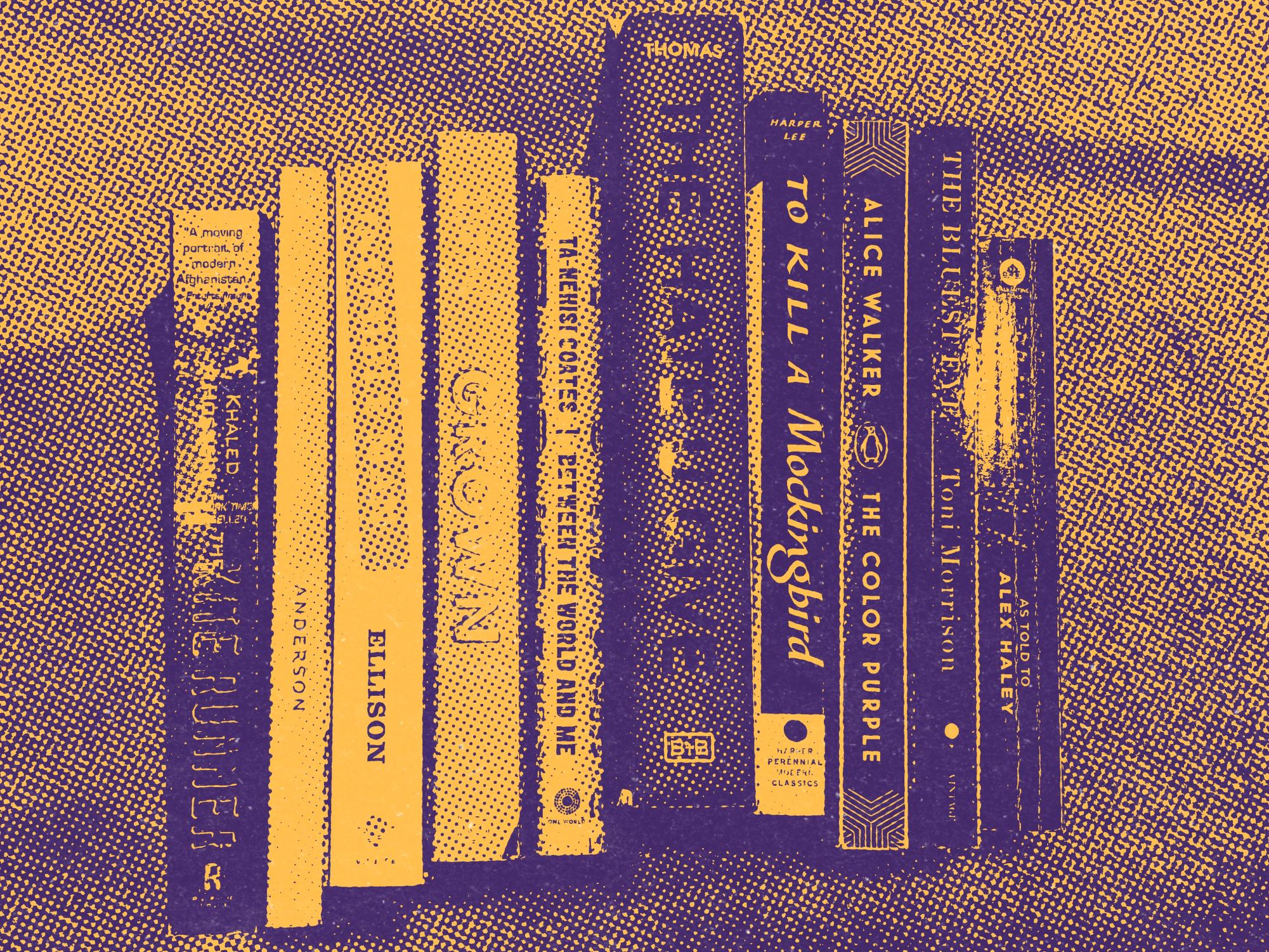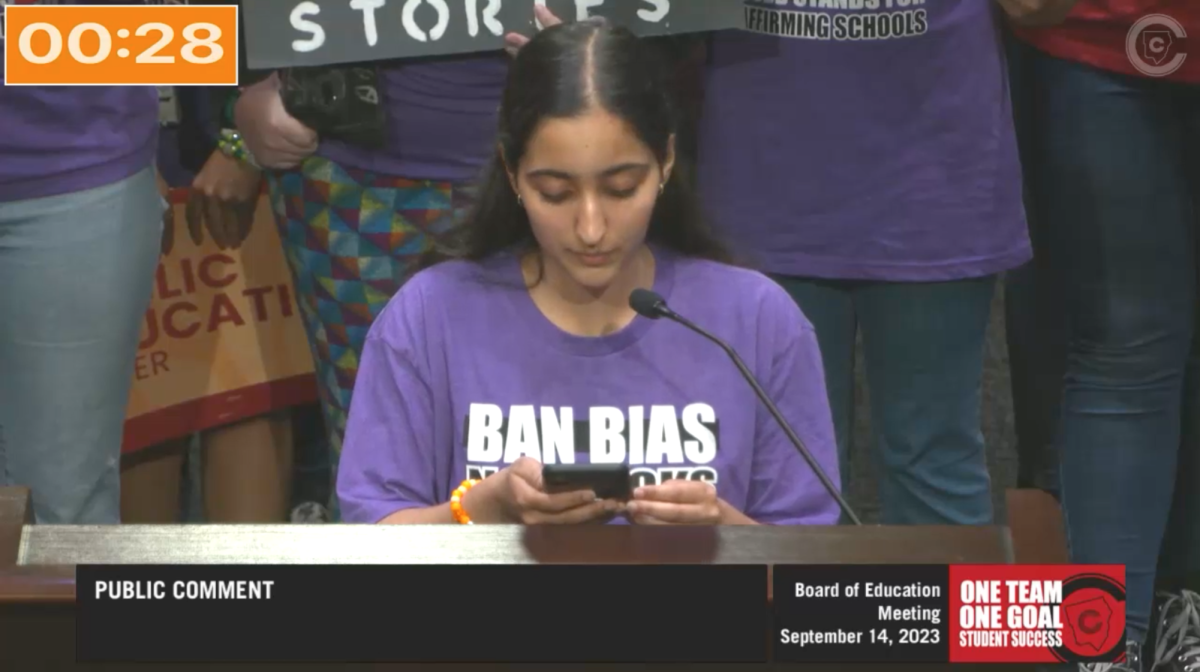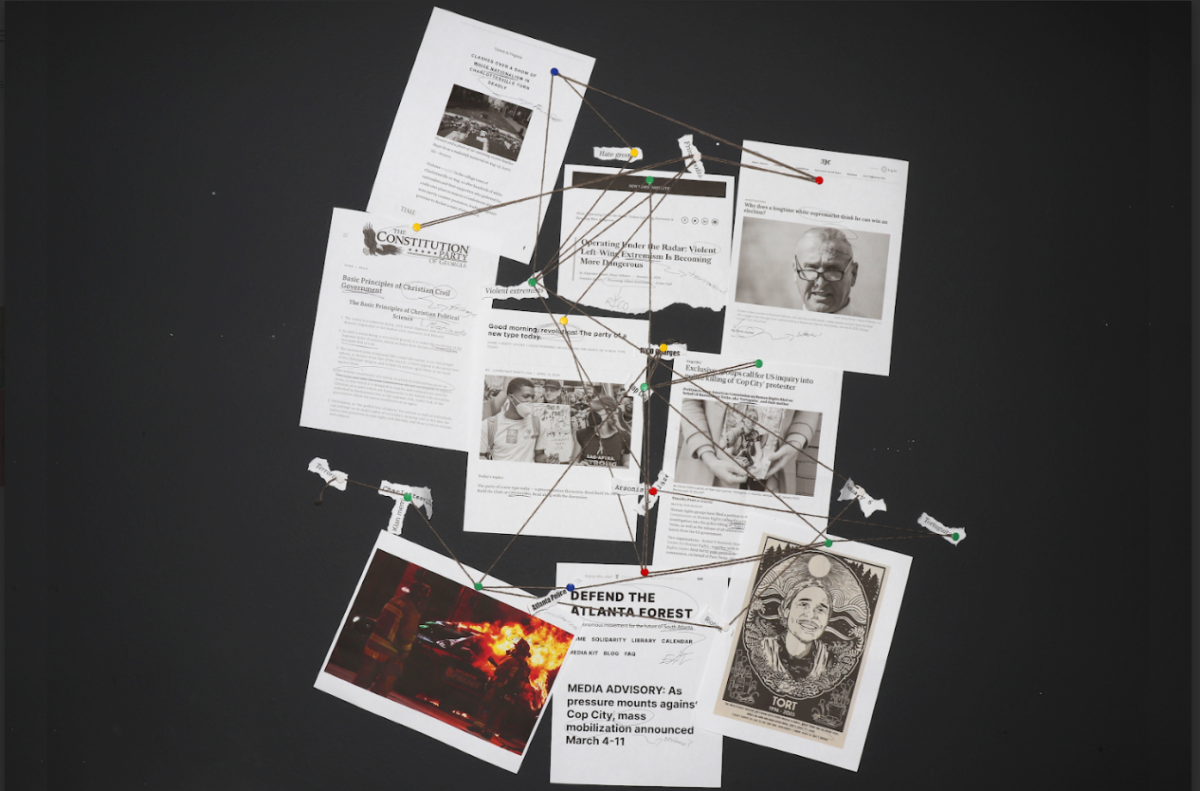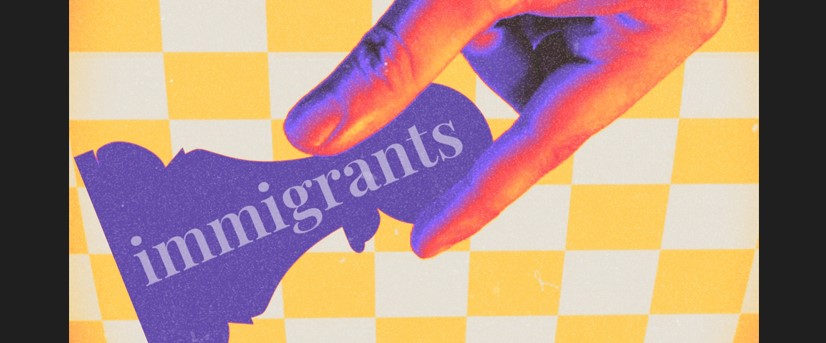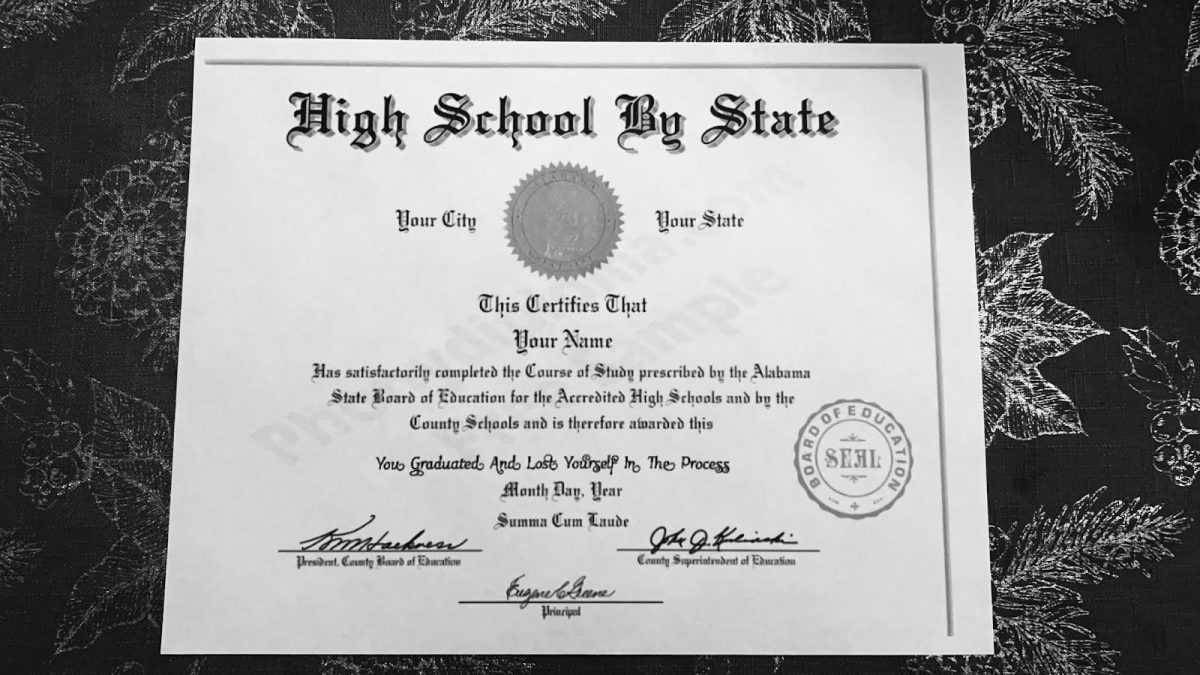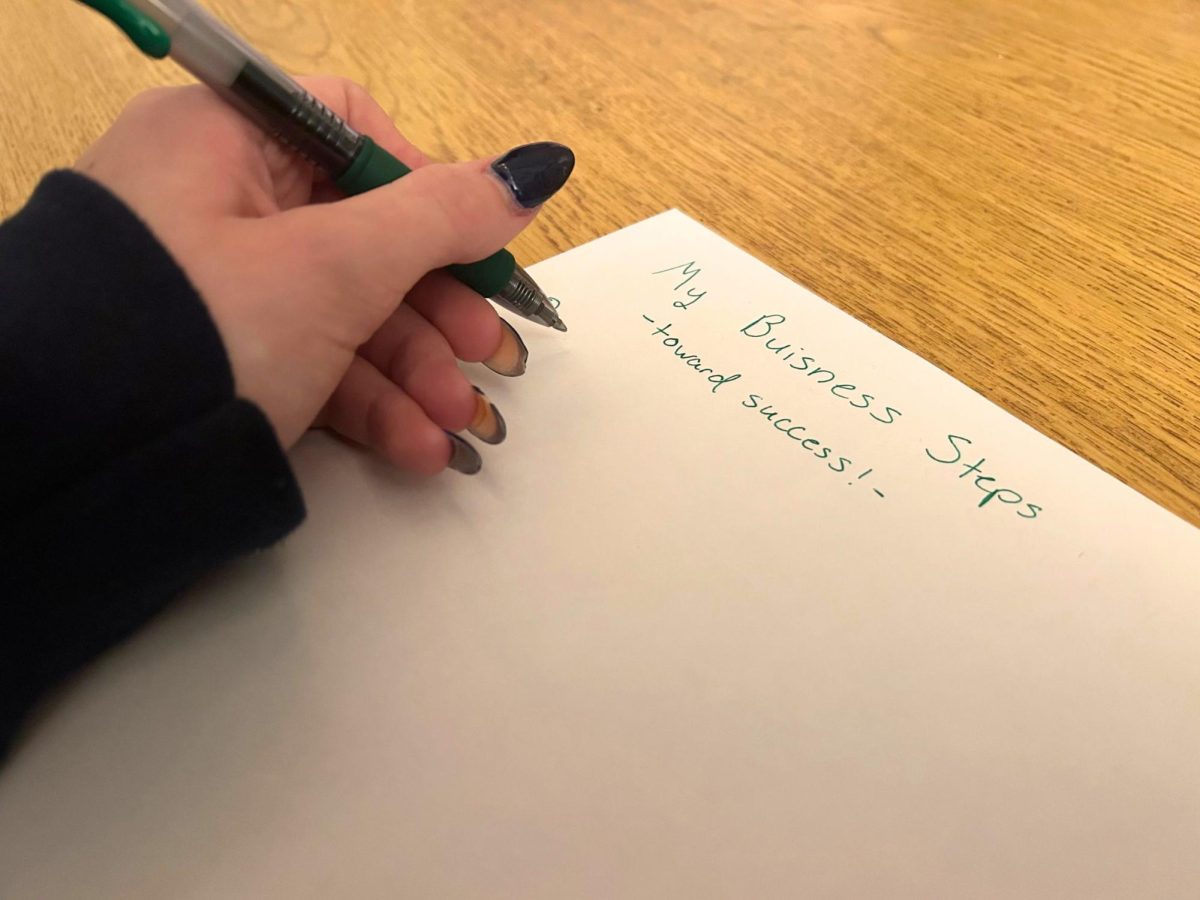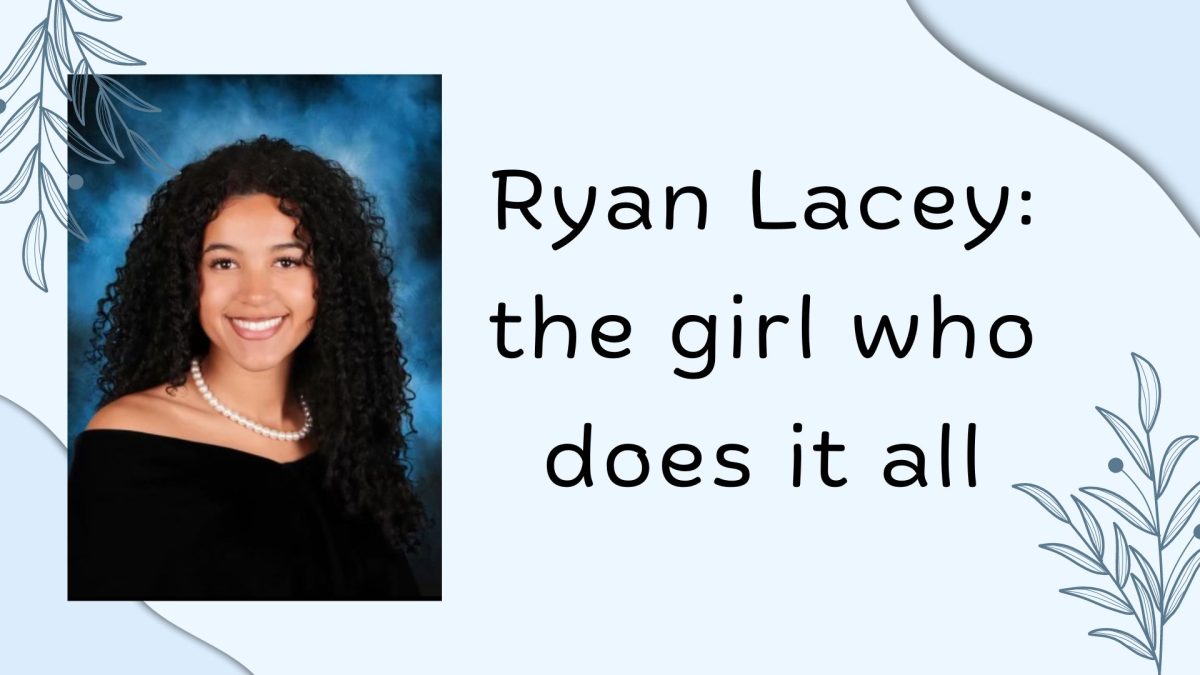Ever since April 28, 2022, teachers across the state of Georgia have started to hide certain books behind curtains. Governor Brian Kemp signed several education bills into law including HB 1084. This law specifies that teachers cannot indoctrinate their students with divisive content regarding race. HB 1084 also states that teachers cannot promote ideologies that examine America’s history of racism or they become at risk of losing their jobs. A plethora of teachers now require their students to provide them with signed parent permission slips to indulge in controversial literature. English and Language Arts teachers who promote reading to their students now welcome them to classrooms with empty bookshelves.
This singular law spiraled from a broader movement where conservative lawmakers have limited how teachers approach racial and LGBTQ+ issues and Florida Governor Ron Desantis stands at the forefront of the movement. Ever since DeSantis advocated for the removal of woke content, Republicans have grabbed the baton of so-called justice and advocated for book removals and changes in class curriculums. Throughout 2020, parents and patrons challenged 273 books due to their trivial content. 2 years later, 2,571 unique titles became challenged nationwide. As for the most challenged books across America currently, all of them either mention LGBTQ+ issues or racial identity.
“I don’t agree with the decision to ban certain books because people should be able to read anything they want. As young adults, we should be exposed to various topics and ideas that build character. Why should these things be restricted now if we will experience them in the future? Why should stories about people that look like me undergo severe censorship,” magnet senior Vivian Nguyen said.
Concerns regarding books continued to spread throughout the United States, and it notably revoked a Georgia teacher from her job. August 18, 2023, the Cobb County Board of Education voted to fire Katie Rinderlie for reading “My Shadow Is Purple” to her fifth-grade students. The book approaches gender roles and identity through a child’s perspective, and Superintendent Chris Ragsdale requested the Board of Education to terminate her contract as a teacher. Rinderlie appealed the firing in September, but no further action has occurred.
During the 1980s, Dekalb County library media specialist Helen Ruffin created an innovative reading competition that inspired future generations of avid readers. The competition required students to indulge themselves in several books, and students would later answer questions about the chosen works of literature. The Helen Ruffin Reading Bowl (HRRB) required students to compete with students from different schools and test their knowledge of the selected books. As a result of the uncertain laws regarding literature, NC and various other Cobb County schools decided not to participate in the rigorous tournament this year. Educators became heavily concerned about whether Cobb County School District (CCSD) students could read controversial books and wanted to know if they would lose their jobs if they chose to participate in the yearly event.
Due to laws such as HB 1084 restricting teachers from approaching certain topics, educators became anxious about certain books included in the HRRB list. Educators specifically worried about the books in the middle school list: “Attack of the Black Rectangles” by Amy Sarig King and “Too Bright to See” by Kyle Lukoff. While King’s novel approaches book censorship of sexual material, “Too Bright to See” follows a transgender protagonist as he explores a haunted house and accepts his identity.
While the HRRB-selected books did not result in expulsions or confiscation, Georgia’s second-largest school district removed other books from shelves August 23, 2023. Twenty libraries in CCSD, including NC, withdrew “Flamer” by Mike Curato and “Me and Earl and the Dying Girl” by Jesse Andrews for containing material the district deemed inappropriate. In an electronic message sent out to CCSD parents, the district claimed that their libraries needed to include only materials aligned to Georgia standards and contained content that appeared age-appropriate. “Flamer” acts as a graphic novel set in a 1995 summer camp with a gay protagonist, while “Me and Earl and the Dying Girl” contains sexually explicit content, according to district officials.
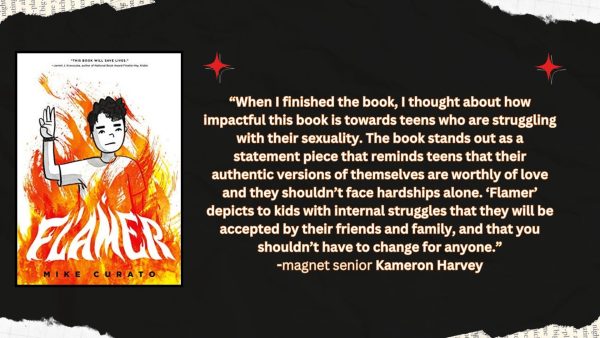
While politicians may advocate for book removals to their colleagues and supporters, parents have joined politicians in the fight against certain literature. Moms for Liberty acts as a conservative political organization that advocates against literature and school curricula that mention topics such as LGBTQ+ rights and Critical Race Theory. Former school board members Tina Descovich and Tiffany Justice founded the institution because they asserted that specific policies directly impacted their children and families. Descovich and Justice claim that they remain dedicated to fighting for the survival of America by empowering parents to defend their parental rights at all levels of government. Moms for Liberty currently manages nearly 300 chapters in 45 states, including chapters in Fulton County and Gwinnett County.
With over 100,000 members supporting the nonprofit organization, concerned parents have attended various school board meetings to complain about controversial books. On websites for specific Moms for Liberty chapters, the association curates lists of books that either provide explicit content or racial commentary. The organization rates controversial books on a scale of one to five, stating that a book with a five might result in an arrest for reading at school board meetings. From books about the Black Lives Matter movement to books regarding police brutality, Moms for Liberty remains adamant in restricting discussions of racial and social issues. The organization also tries to elect its members as school board candidates, but the majority of candidates backed by the conservative group lost in elections held across the country. The Southern Poverty Law Center additionally included Moms for Liberty to its list of anti-government extremist entities.
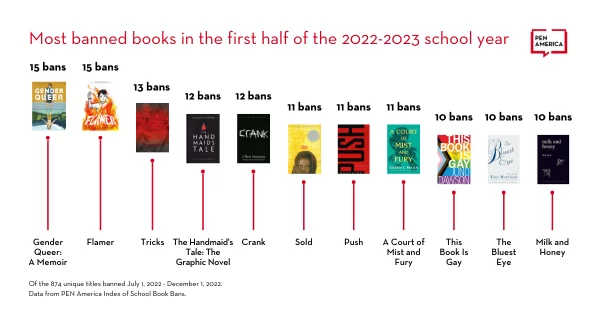
In 2022, “Gender Queer: A Memoir” by Maia Kobabe became the most banned book in America. Kobabe approached their journey with nonbinary identity through their graphic memoir debut, and it resulted in 151 book challenges. Although the number may appear minuscule, the American Library Association (ALA) claims that book challenges do not always receive coverage from the press or reports to the ALA. The book also faced scrutiny for its depiction of sexual behavior, as the author drew detailed images of sexual activities in the memoir. Several parental groups and political candidates condemned the book as pornography aimed at impressionable children, yet the author asserts that the graphic memoir remains directed toward older teens and adults.
“The Bluest Eye” by Toni Morrison also placed highly on the list of challenged books due to its discussion about race and class. While several of Morrison’s novels become challenged for their depictions of racial issues, her work also appears in AP Literature and Composition recommendations. “The Bluest Eye” follows Pecola Breedlove, a Black girl who struggles to love herself due to her toxic family and segregated environment. Breedlove does not know how her issues could disappear, and she prays for blue eyes because she views her skin color and eye color as qualities of ugliness. At the beginning of the novel, she appears fragile and delicate; by the end, Breedlove becomes completely demolished by violence and beauty standards.
The removal of certain books can strip away stories regarding racial issues and LGBTQ+ representation. Although organizations such as Moms for Liberty have persistently fought to remove literature, students have decided to fight back. The Georgia Youth Justice Coalition features students who strongly advocate for local social justice issues, such as the construction of Cop City and restricted literature. September 14, 2023, numerous members of the coalition attended a CCSD board meeting to articulate the importance of literature to board members. Several NC students attended the meeting and wore purple t-shirts that profoundly stated “Ban Bias, Not Books.”
“We had no seats, but we stood for several hours, listening to many speakers, many of whom agreed with my viewpoint: people need to stop banning books. Censorship goes against the very concepts of liberalism that the US was meant to be founded on. What is the difference between burning books and banning them? Both aim to remove literature and viewpoints that provide different ideals from our own,” magnet senior Knoxe Caseria said.
Due to the drastic increase in book challenges and removals during the 2020s, people have compared the act of censorship to a classic work of literature: “Fahrenheit 451” by Ray Bradbury. In the book, the government requires the protagonist to burn books and housing that contain printed literature. As the book progresses, the main character notices the issues with removing literature and taking away the ability to read powerful stories. While conservative candidates and nonprofit organizations may think that they promote the survival of America and liberty through their book challenges, students and various other organizations feel unheard. Therefore, students and various youth coalitions will continue the fight for literature and walk toward a future where stories can remain uncensored.
“Book bans censor valuable information about other people’s stories. If we don’t listen to these stories then we cannot understand people, limiting our perspective and exaggerating our bias. Please do not ban books,” magnet senior Jakson Vermillion said.


